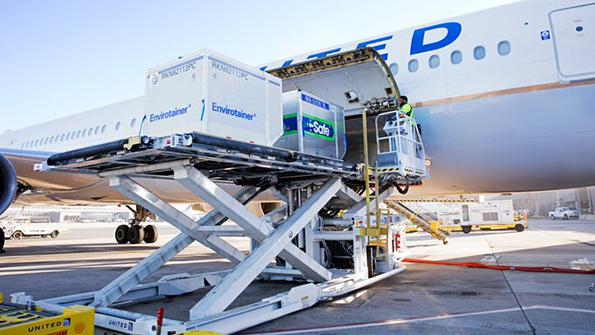Will Freighter Companies Be Able To Handle COVID-19 Vaccine Transport?

Ask the Editors: The Aviation Week Network invites our readers to submit questions to our editors and analysts. We’ll answer them, and if we can’t we’ll reach out to our wide network of experts for advice.
Will transporting COVID-19 vaccines be an opportunity for freighter companies? How will that amount of vaccine be transported?
Aviation Week Air Transport Editor Helen Massy-Beresford answers:
This will be a big challenge for the air cargo industry. The International Air Transport Association (IATA) said recently that transporting even one dose of vaccine to 7.8 billion people would fill 8,000 Boeing 747 cargo aircraft. Earlier this month, it set out guidance aimed at helping air cargo operators upscale their current logistics capacity and also covering the specialized cold facilities and infrastructure that will be needed in addition to border management and security and cooperation among governments, supply chain partners, humanitarian organizations and pharmaceutical manufacturers.
The air cargo sector is facing up to this challenge as it battles another one: lack of capacity. With many long-haul flights around the world still grounded, a significant chunk of belly hold capacity has been taken out of the market and operators have only been able to partially offset that through increased freighter operations. IATA statistics show global demand in cargo ton-kilometers was down 8% year-over-year in September, an improvement from the 12.1% year-over-year decline recorded in August. But capacity in available cargo ton-kilometers was 25.2% lower year-over-year in September.
There will be more than one type of vaccine, so it is impossible at this point to predict exactly how many doses will need to be transported and when, or the specific conditions they will need to be kept in. Pfizer’s candidate, for example, needs to be kept in a deep-frozen state. Specialist air cargo operators are used to handling temperature-sensitive cargo, and this is an area in which many have invested heavily in recent years, but there is no doubt that such a huge operation is going to put pressure on them.
The vaccine challenge is also likely to highlight the need for further progress in digitization, which would allow the whole supply chain to better coordinate and track and monitor shipments more effectively. This is an area in which the cargo industry has lagged behind the passenger side for some years, but the challenge of transporting COVID-19 vaccines may be the catalyst it needs to focus on digital improvements.





